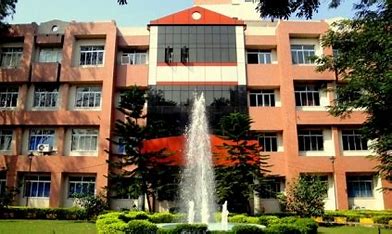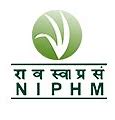
National Institute of Plant Health Management (NIPHM)

National Institute of Plant Health Management (NIPHM)
Address:
National Institute of Plant Health Management (NIPHM)
Rajendranagar, Hyderabad,
Telangana – 500 030,
India
Postal Code (ZIP Code):
500 030
About National Institute of Plant Health Management (NIPHM)
The National Institute of Plant Health Management (NIPHM), located in Hyderabad, Telangana, is one of India’s premier institutions dedicated to the promotion of sustainable agricultural practices, plant health, and pest management. Established in 2006 by the Ministry of Agriculture and Farmers Welfare, Government of India, NIPHM aims to address the pressing concerns related to plant health, pest control, and food security in the country. It works on various aspects of integrated pest management (IPM), plant disease management, and pest surveillance, with a focus on training, research, and the development of technologies that benefit farmers and the agricultural sector at large.
NIPHM’s vision is to contribute to the agricultural development of India by promoting environmentally sustainable and economically viable solutions to plant health challenges. As agriculture forms the backbone of India’s economy, plant health management is crucial to enhancing crop productivity, ensuring food security, and improving the livelihoods of farmers. NIPHM plays a critical role in providing training to extension workers, farmers, and agricultural professionals, as well as conducting research on plant pests, diseases, and management strategies.
With its expertise, NIPHM has become an important resource for agricultural institutions, government agencies, and stakeholders in the agricultural supply chain, providing scientifically sound, eco-friendly, and cost-effective solutions to combat plant health problems.
History and Formation of NIPHM
The formation of NIPHM was driven by the growing need to address the challenges faced by Indian agriculture due to the increasing threats posed by plant diseases, pests, and invasive species. These challenges have a significant impact on crop yield and food security, as well as the health of the environment and biodiversity.
Before the establishment of NIPHM, various organizations and institutions worked independently in the areas of pest management, but there was no centralized body that could bring together research, training, and policy-making to manage plant health holistically. In response to this need, NIPHM was created as an autonomous body under the Ministry of Agriculture and Farmers Welfare with the aim of promoting integrated pest management (IPM) practices and improving plant health across India.
The institute began its operations by focusing on training programs for farmers, agricultural extension officers, and researchers in the fields of plant protection, pest surveillance, and disease management. Over the years, NIPHM has expanded its scope of activities to include research, policy development, and international collaborations aimed at improving plant health management practices.
Mission and Vision
Mission:
NIPHM’s mission is to enhance plant health by promoting sustainable pest management practices, improving agricultural productivity, and ensuring environmental safety. The institute strives to develop and disseminate integrated solutions for managing pests and plant diseases, with an emphasis on training, research, and technology development.
Vision:
The vision of NIPHM is to be a leading institution in the field of plant health management, driving innovation and knowledge dissemination in plant protection technologies. The institute envisions a future where agricultural practices are sustainable, resilient to climate change, and conducive to food security, while reducing the reliance on harmful chemicals and minimizing environmental impact.
Research and Areas of Focus
NIPHM’s research and activities cover a broad spectrum of plant health management challenges, focusing on sustainable solutions that reduce the dependency on chemical pesticides and promote integrated pest management (IPM). Some of the key research areas at NIPHM include:
- Integrated Pest Management (IPM):
Integrated Pest Management (IPM) is at the core of NIPHM’s research and outreach activities. IPM is a holistic approach that combines various pest control methods such as biological control, cultural practices, physical control, and the judicious use of chemical pesticides to manage pests. NIPHM conducts research to develop new IPM strategies, disseminate information on best practices to farmers, and monitor the effectiveness of IPM programs in various crops. The aim is to minimize the use of chemical pesticides, reduce the development of pest resistance, and promote environmentally friendly practices. - Pest Surveillance and Monitoring:
Pest surveillance is essential for identifying emerging threats and effectively managing pest outbreaks. NIPHM conducts research on pest surveillance systems and works with national and state governments to monitor pest populations and disease outbreaks. The institute develops pest forecasting models and collaborates with agricultural departments to provide timely warnings to farmers about potential pest invasions. This early warning system helps farmers take preventive measures and reduce crop damage. - Plant Disease Management:
NIPHM works on diagnosing plant diseases and developing strategies for their management. This includes research on fungal, bacterial, viral, and nematode diseases that affect crops. The institute promotes the use of resistant crop varieties, biological control agents, and the application of safe and sustainable chemical treatments. NIPHM also works on the development of disease-resistant seeds and provides recommendations for crop rotation, sanitation, and other cultural practices that prevent the spread of diseases. - Pest Resistance Management:
One of the significant challenges in plant health management is the development of pest resistance to commonly used pesticides. NIPHM conducts research on pest resistance and works to develop strategies to manage pesticide resistance. This includes the promotion of pesticide rotation, the use of low-residue pesticides, and the integration of non-chemical pest control methods to mitigate resistance. - Invasive Species Management:
Invasive species pose a major threat to plant health and biodiversity in India. NIPHM is involved in the study and management of invasive pests and diseases, including those introduced through international trade. The institute collaborates with international agencies and research institutions to prevent the spread of invasive species and to develop effective management strategies for these threats. - Biological Control and Biopesticides:
Biological control involves the use of natural enemies (such as predators, parasites, and pathogens) to control pest populations. NIPHM is actively involved in research on biological control agents and biopesticides, which are eco-friendly alternatives to chemical pesticides. The institute promotes the use of biocontrol agents and biopesticides as part of integrated pest management strategies to reduce the environmental impact of conventional pesticide use. - Climate Change and Plant Health:
The changing climate poses significant challenges to plant health, including altering pest dynamics, disease patterns, and crop susceptibility. NIPHM conducts research on how climate change affects pest and disease outbreaks and works on strategies to mitigate these impacts. This includes developing climate-resilient agricultural practices and pest management strategies that can adapt to changing weather patterns. - Agricultural Extension and Farmer Education:
NIPHM places a strong emphasis on farmer education and extension services. The institute develops training programs, workshops, and outreach materials to educate farmers about sustainable pest management practices, the safe use of pesticides, and the importance of plant health for agricultural productivity. NIPHM also conducts awareness campaigns on the dangers of overusing chemical pesticides and promotes the adoption of safer alternatives.
Training and Capacity Building
One of NIPHM’s primary functions is to provide training and capacity-building programs in plant health management. These programs are designed for various stakeholders, including farmers, agricultural extension workers, policymakers, researchers, and industry professionals. NIPHM offers:
- Training Programs for Farmers:
NIPHM conducts training programs to educate farmers on the principles of IPM, pest identification, disease management, and the judicious use of pesticides. The goal is to empower farmers with the knowledge and skills to manage pests and diseases effectively while minimizing environmental and health risks. - Capacity Building for Extension Workers:
Agricultural extension officers are critical in disseminating knowledge and technologies to farmers. NIPHM trains extension workers on the latest pest management practices, diagnostic tools, and pest monitoring techniques, ensuring that they are equipped to provide accurate and timely advice to farmers. - Workshops and Seminars:
NIPHM organizes national and international workshops, seminars, and conferences to promote knowledge exchange among researchers, industry professionals, and policymakers. These events provide platforms for discussing the latest research findings, sharing best practices, and formulating strategies for improving plant health management. - Certification Courses:
NIPHM offers specialized certification courses in areas such as pesticide management, biological control, and plant health diagnostics. These courses are designed for professionals working in the agricultural and horticultural sectors who wish to gain in-depth knowledge and practical skills in plant health management.
Collaborations and Partnerships
NIPHM collaborates with various national and international organizations, research institutions, universities, and government bodies to achieve its objectives. These partnerships enable NIPHM to stay at the forefront of plant health research and contribute to global efforts in pest and disease management.
The institute has close ties with organizations such as the Food and Agriculture Organization (FAO), Indian Council of Agricultural Research (ICAR), and the International Plant Protection Convention (IPPC). NIPHM also works with state agricultural departments, agricultural universities, and NGOs to implement pest management strategies at the grassroots level.
Key Achievements and Impact
Over the years, NIPHM has made significant contributions to improving plant health management in India. Some of its notable achievements include:
- Development of IPM protocols that have been widely adopted by farmers and agricultural agencies across India.
- Successful pest surveillance programs that help prevent the spread of pests and diseases in crops.
- Promotion of biological control methods and the reduction of pesticide usage in Indian agriculture.
- Improved crop yield and quality due to the adoption of sustainable pest management practices.
Courses/Programs
| Serial# | Title | Estimated Cost | Program type |
|---|
